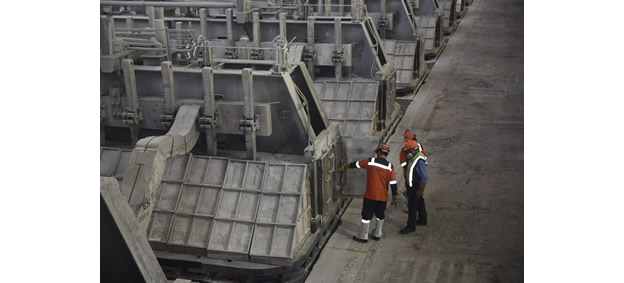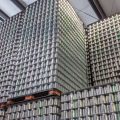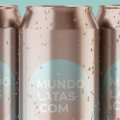Aluminum is a strategic metal that requires a lot of energy and gas is the main fuel to produce it. Russia is also a major aluminum producer and the threat of sanctions by the United States and other Western countries on Moscow if it attacks Ukraine has intensified concerns about global aluminum supply.
Aluminum is at record highs, something that has not happened since 2008. Russia is the largest aluminum producer outside China with about 13% of the market. Fears that the Nord Stream 2 pipeline will eventually be shut down have sent aluminum soaring. Since the end of last November, prices have been rising to reach 7% in December and almost 11% since the beginning of 2022.
In the case of the old continent, Europe has lost more than 650,000 tons of annual production capacity since the rise in energy prices began in October, according to European Aluminium. Aluminum has risen to $3,170 per tonne, after posting its highest since October 19 at $3,172. Aluminum stocks in LME licensed warehouses fell to 768,250 tons, their lowest level since February 2007.
The short supply of aluminum has created problems for the construction industry and for beverage manufacturers, which have had trouble getting enough aluminum cans, as, for example, Monster Beverage had trouble a few months ago to fully meet the increase in demand.
China’s aluminum production, which accounts for about 57% of the world total, has been affected by new environmental policies. Xi Jingping’s government is putting pressure on polluting companies to cut emissions and save energy by 2060, so mining companies have seen their production affected. In the manufacture of aluminum, large quantities of tar vapors, sulfur dioxide and fluoramine are emitted into the atmosphere, in addition to high energy consumption.
Moreover, a coup d’état in Guinea last year has also triggered market alerts. This country is the second largest producer of bauxite, one of the main sources from which aluminum is extracted, so the stoppage of its exports could profoundly affect world supply.
Nevertheless, aluminum can manufacturers have invested in new projects to increase their capacity. In the United States, last September, Ball Corporation announced that it would build a US$290 million packaging plant in Nevada. But with the plant not expected to come online until the end of 2022, the company predicts that demand will continue to outstrip supply in the near term.
Aluminum prices on international markets continue at record highs and the trend appears to be upward. If this situation persists, it threatens to raise the prices of a myriad of downstream products, from canned food and smartphones to electronic cars and airplanes, leading to an added commodities crisis and a stock market earthquake.














